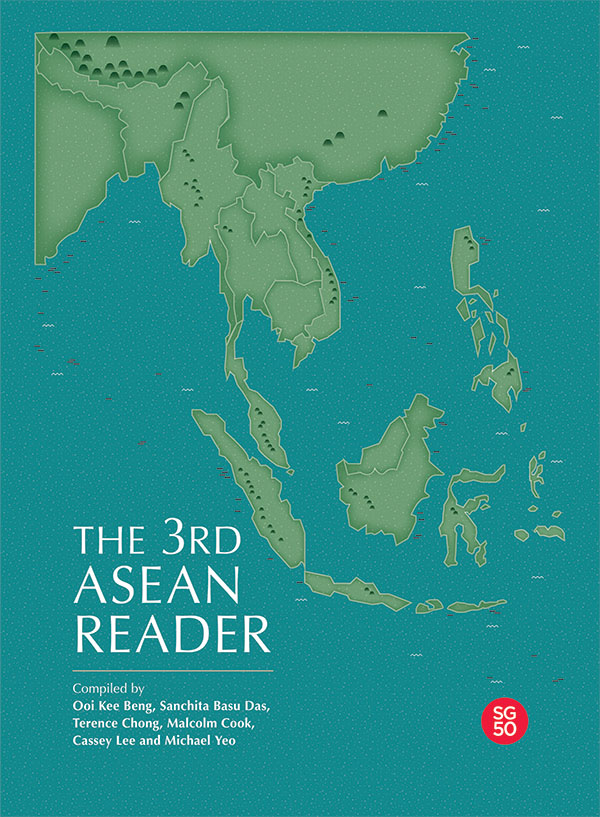Book contents
- Frontmatter
- Contents
- Preface
- Forewords to the First and Second ASEAN Reader: ASEAN: Conception and Evolution
- Forewords to the First and Second ASEAN Reader: ASEAN: The Way Ahead
- Forewords to the First and Second ASEAN Reader: New Challenges for ASEAN
- SECTION I ASEAN: THE LONG VIEW
- SECTION II COUNTRY ANALYSES
- Section Introduction by
- 5 Political Figures and Political Parties: Indonesia after Soeharto
- 6 Malaysia: Close to a Tipping Point
- 7 Thailand: The Military's Power Persists
- 8 Vietnam: Reforms Show Mixed Results
- 9 The Philippines: Challenging Conventional Wisdom
- 10 Myanmar: Late Embrace of ASEAN
- 11 Timor-Leste and ASEAN
- SECTION III COMPARATIVE ANALYSES OF THE REGION
- Southeast Asian Societies
- The Southeast Asian Economy
- Southeast Asian Politics
- SECTION IV INTERNATIONAL DEVELOPMENTS
- SECTION V INSTITUTIONS OF ASEAN
- SECTION VI ASSESSING ASEAN'S INTERNAL POLICIES
- ASEAN Political Security Community
- ASEAN Economic Community
- ASEAN Socio-Cultural Community
- SECTION VII ASSESSING ASEAN'S EXTERNAL INITIATIVES
- ASEAN Processes
- ASEAN's Major Power Relations
- SECTION VIII SOUTHEAST ASIA: PERIPHERAL NO MORE
- Bibliography
- The Contributors
- The Compilers
11 - Timor-Leste and ASEAN
from SECTION II - COUNTRY ANALYSES
Published online by Cambridge University Press: 22 June 2017
- Frontmatter
- Contents
- Preface
- Forewords to the First and Second ASEAN Reader: ASEAN: Conception and Evolution
- Forewords to the First and Second ASEAN Reader: ASEAN: The Way Ahead
- Forewords to the First and Second ASEAN Reader: New Challenges for ASEAN
- SECTION I ASEAN: THE LONG VIEW
- SECTION II COUNTRY ANALYSES
- Section Introduction by
- 5 Political Figures and Political Parties: Indonesia after Soeharto
- 6 Malaysia: Close to a Tipping Point
- 7 Thailand: The Military's Power Persists
- 8 Vietnam: Reforms Show Mixed Results
- 9 The Philippines: Challenging Conventional Wisdom
- 10 Myanmar: Late Embrace of ASEAN
- 11 Timor-Leste and ASEAN
- SECTION III COMPARATIVE ANALYSES OF THE REGION
- Southeast Asian Societies
- The Southeast Asian Economy
- Southeast Asian Politics
- SECTION IV INTERNATIONAL DEVELOPMENTS
- SECTION V INSTITUTIONS OF ASEAN
- SECTION VI ASSESSING ASEAN'S INTERNAL POLICIES
- ASEAN Political Security Community
- ASEAN Economic Community
- ASEAN Socio-Cultural Community
- SECTION VII ASSESSING ASEAN'S EXTERNAL INITIATIVES
- ASEAN Processes
- ASEAN's Major Power Relations
- SECTION VIII SOUTHEAST ASIA: PERIPHERAL NO MORE
- Bibliography
- The Contributors
- The Compilers
Summary
The popular referendum held on the future of East Timor in August 1999 presented a novel challenge for ASEAN and its members. During the twenty-four-year Indonesian occupation of the territory ASEAN had studiously upheld its policy of non-interference in the internal affairs of member states, despite the fact that the 1975 invasion was a violation of international law and despite the ongoing abuses of human rights. For this reason, ASEAN was ill-prepared to play a constructive role at the time of the referendum and East Timorese leaders had little reason to view ASEAN with much sympathy. Nevertheless, when the UN called for regional participation in the peacekeeping force tasked with maintaining security in the territory until the restoration of independence in May 2002, Thailand, the Philippines, Malaysia, and Singapore all agreed to contribute military personnel.
With the achievement of independence, East Timorese elites began to discuss foreign policy issues, including application for membership in regional associations. These early discussions were coloured by concern about negotiating the maritime boundary with Australia and production-sharing agreements from offshore oil and gas fields, but also included consideration of cultural affinities with states in the Pacific Islands Forum and the potential economic and security benefits of orientation toward ASEAN. Further afield, the Community of Portuguese-speaking Countries offered historic and linguistic succor, while China loomed as a potential benefactor.
Timor-Leste thus enjoyed a range of options in the international arena, but it faced pressing issues on the domestic front. Physical infrastructure had been devastated by the Indonesian military and its militias in 1999, tens of thousands of people remained displaced from their homes (some still in Indonesian West Timor), agricultural output was well below domestic needs, basic health care was limited, and the education system needed to be rebuilt from scratch. The United Nations and a host of international agencies provided technical assistance and aid, but much of the focus was on building new state institutions, not the provision of services or job creation. With meager annual state budgets, the Fretilin government led by Prime Minister Mari Alkatiri prioritized the repair of basic infrastructure, health care (with Cuba providing doctors to serve in rural clinics and medical training for East Timorese students), and primary education (with Portugal providing several hundred volunteer language teachers).
- Type
- Chapter
- Information
- The 3rd ASEAN Reader , pp. 54 - 58Publisher: ISEAS–Yusof Ishak InstitutePrint publication year: 2015

